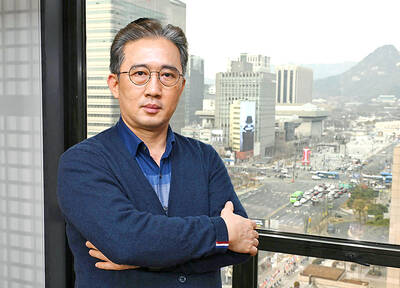Venezuelan President Hugo Chavez threatened on Sunday to cut off oil sales to the US in an "economic war" if ExxonMobil Corp wins court judgments to seize billions of dollars in Venezuelan assets.
"If you end up freezing [the assets] and it harms us, we're going to harm you," Chavez said, turning his words to US President George W. Bush. "Do you know how? We aren't going to send oil to the United States. Take note, Mr Bush, Mr Danger."
ExxonMobil has gone after the assets of Venezuela's state oil company, Petroleos de Venezuela SA, in US, British and Dutch courts as it challenges the nationalization of a multibillion dollar oil project by Chavez's government last year. A British court has issued an injunction "freezing" as much as US$12 billion in assets.
"I speak to the US empire, because that's the master: Continue and you will see that we won't send one drop of oil to the empire of the United States," Chavez said during his weekly radio and TV program Alo Presidente.
"The outlaws of ExxonMobil will never again rob us," Chavez said, accusing the Irving, Texas-based oil giant of acting in concert with Washington and being part of corporate "worldwide mafias."
Chavez has often threatened to cut off oil shipments to the US, which is Venezuela's No. 1 client, if Washington tries to oust him.
Chavez's warnings on Sunday appeared to extend that threat to attempts by oil companies to challenge his government's nationalization drive through lawsuits.
"If the economic war continues against Venezuela, the price of oil is going to reach US$200 [a barrel] and Venezuela will join the economic war," Chavez said.
"And more than one country is willing to accompany us in the economic war," he said.
ExxonMobil spokeswoman Margaret Ross said the company had no comment. A US embassy spokeswoman in Caracas did not return a call.
The US imported 1.23 million barrels of crude oil a day from Venezuela in November, making it the fourth-biggest source of oil imports behind Canada, Saudi Arabia and Mexico, the latest US Energy Department figures showed.
Those four countries, along with Nigeria, accounted for 74 percent of US crude oil imports in November, the government said. By itself, Venezuela accounted for about 12 percent of US crude imports, the figures showed.
Venezuelan Oil Minister Rafael Ramirez has said that court orders won by ExxonMobil have "no effect" on the state oil company PDVSA and are merely "transitory measures" while Venezuela presents its case in courts in New York and London.
ExxonMobil is also taking its claims to international arbitration, disputing the terms it was granted under Chavez's nationalization last year of four heavy oil projects in the Orinoco River basin, one of the world's richest oil deposits.
Late last night, PDVSA said it had moved its export payment accounts to UBS bank in Switzerland after ExxonMobil secured the embargo.
A central bank director in Curacao said Exxon lawyers had told banks that one of the court rulings meant they had to at least maintain the current level of funds PDVSA holds in any account in the Netherlands Antilles island.
"It all has to go to UBS in Switzerland now," said one trader who asked not to be identified.

VAGUE: The criteria of the amnesty remain unclear, but it would cover political violence from 1999 to today, and those convicted of murder or drug trafficking would not qualify Venezuelan Acting President Delcy Rodriguez on Friday announced an amnesty bill that could lead to the release of hundreds of prisoners, including opposition leaders, journalists and human rights activists detained for political reasons. The measure had long been sought by the US-backed opposition. It is the latest concession Rodriguez has made since taking the reins of the country on Jan. 3 after the brazen seizure of then-Venezuelan president Nicolas Maduro. Rodriguez told a gathering of justices, magistrates, ministers, military brass and other government leaders that the ruling party-controlled Venezuelan National Assembly would take up the bill with urgency. Rodriguez also announced the shutdown

Chinese President Xi Jinping’s (習近平) purge of his most senior general is driven by his effort to both secure “total control” of his military and root out corruption, US Ambassador to China David Perdue said told Bloomberg Television yesterday. The probe into Zhang Youxia (張又俠), Xi’s second-in-command, announced over the weekend, is a “major development,” Perdue said, citing the family connections the vice chair of China’s apex military commission has with Xi. Chinese authorities said Zhang was being investigated for suspected serious discipline and law violations, without disclosing further details. “I take him at his word that there’s a corruption effort under

China executed 11 people linked to Myanmar criminal gangs, including “key members” of telecom scam operations, state media reported yesterday, as Beijing toughens its response to the sprawling, transnational industry. Fraud compounds where scammers lure Internet users into fake romantic relationships and cryptocurrency investments have flourished across Southeast Asia, including in Myanmar. Initially largely targeting Chinese speakers, the criminal groups behind the compounds have expanded operations into multiple languages to steal from victims around the world. Those conducting the scams are sometimes willing con artists, and other times trafficked foreign nationals forced to work. In the past few years, Beijing has stepped up cooperation

The dramatic US operation that deposed Venezuelan president Nicolas Maduro this month might have left North Korean leader Kim Jong-un feeling he was also vulnerable to “decapitation,” a former Pyongyang envoy to Havana said. Lee Il-kyu — who served as Pyongyang’s political counselor in Cuba from 2019 until 2023 — said that Washington’s lightning extraction in Caracas was a worst-case scenario for his former boss. “Kim must have felt that a so-called decapitation operation is actually possible,” said Lee, who now works for a state-backed think tank in Seoul. North Korea’s leadership has long accused Washington of seeking to remove it from power